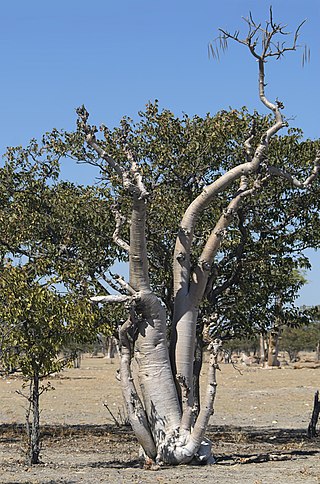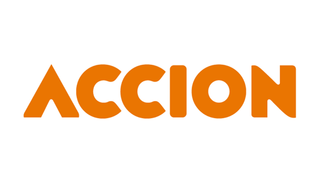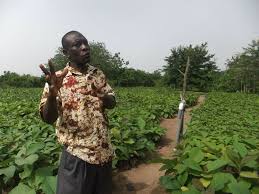 | |
| Founded | 2007 |
|---|---|
| Founder | Hayford Siaw |
| Focus | Humanitarian |
| Location | |
Area served | West Africa |
| Method | Volunteer placement |
| Website | www.vpwa.org |
Volunteer Partnerships for West Africa (VPWA) is a non-profit non-governmental organization based in Ghana.
 | |
| Founded | 2007 |
|---|---|
| Founder | Hayford Siaw |
| Focus | Humanitarian |
| Location | |
Area served | West Africa |
| Method | Volunteer placement |
| Website | www.vpwa.org |
Volunteer Partnerships for West Africa (VPWA) is a non-profit non-governmental organization based in Ghana.
Volunteer Partnerships for West Africa was founded in 2007 by Ghanaian social entrepreneur Hayford Siaw.
VPWA set up its microfinance arm in 2009, called MicroQuips, offering microloans to entrepreneurs as a measure against poverty. In the first year of the program, VPWA secured 80 loans for the women of Ghana, loaning out ₵ 11,126 (US$ 7,650 in 2010). [1]
Started in 2010, Green Ghana Volunteers is a project involving the planting of Moringa oleifera trees around the region. By planting the moringa trees on a large scale, the project tries to create jobs and, in the process, potentially rehabilitates degraded land. [2] [ better source needed ][ needs update ]

Microcredit is the extension of very small loans (microloans) to impoverished borrowers who typically lack collateral, steady employment, and a verifiable credit history. It is designed to support entrepreneurship and alleviate poverty. Many recipients are illiterate, and therefore unable to complete paperwork required to get conventional loans. As of 2009 an estimated 74 million people held microloans that totaled nearly US$40 billion. Grameen Bank reports that repayment success rates are between 95 and 98 percent. The first economist who had invented the idea of microloans was Jonathan Swift in the 1720s. Microcredit is part of microfinance, which provides a wider range of financial services, especially savings accounts, to the poor. Modern microcredit is generally considered to have originated with the Grameen Bank founded in Bangladesh in 1983 by their current Chief Adviser Muhammad Yunus. Many traditional banks subsequently introduced microcredit despite initial misgivings. The United Nations declared 2005 the International Year of Microcredit. As of 2012, microcredit is widely used in developing countries and is presented as having "enormous potential as a tool for poverty alleviation."

Microfinance consists of financial services targeting individuals and small businesses (SMEs) who lack access to conventional banking and related services.

John Kofi Agyekum Kufuor is a Ghanaian politician who served as President of Ghana from 7 January 2001 to 7 January 2009. He was a Chairperson of the African Union from 2007 to 2008 and his victory over John Evans Atta Mills at the end of Jerry Rawlings' second term marked the first transition of power in Ghana from a democratic party to another democratic party. Kufuor's career has been spent on the liberal-democratic side of Ghanaian politics, in the parties descended from the United Gold Coast Convention and the United Party. As a lawyer and businessman, he was a minister in Kofi Abrefa Busia's Progress Party government during Ghana's Second Republic, and a Popular Front Party opposition frontbencher during the Third Republic. In the Fourth Republic, Kufuor stood as the New Patriotic Party's candidate at the 1996 election, and then led it to victory in 2000 and 2004. Having served two terms in power, he retired from politics in 2008. He is popularly known as the Gentle Giant.
The Hunger Project (THP), founded in 1977 with the stated goal of ending world hunger in 25 years, is an organization committed to the sustainable end of world hunger. It has ongoing programs in Africa, Asia, and Latin America, where it implements programs aimed at mobilizing rural grassroots communities to achieve sustainable progress in health, education, nutrition, and family income. THP is a 501(c)(3) non-profit charitable organization incorporated in the state of California.
Grameen Bank is a microfinance, specialized community development bank founded in Bangladesh. It provides small loans to the impoverished without requiring collateral.

Moringa is the sole genus in the plant family Moringaceae. It contains 13 species, which occur in tropical and subtropical regions of Africa and Asia and that range in size from tiny herbs to massive trees. Moringa species grow quickly in many types of environments.

Accion is an international nonprofit. Founded as a community development initiative serving the poor in Venezuela, it works with local partners in different countries to develop and scale digital financial solutions for underserved people globally.
Improving Economies for Stronger Communities (formerly known as International Executive Service Corps) is an international economic development not-for-profit organization with headquarters in Washington, D.C. IESC was founded in 1964 by David Rockefeller, States M. Mead III, Frank Pace, Sol Linowitz, and other American business leaders. IESC has worked in sub-Saharan Africa, Europe and Eurasia, Asia and the Near East, and Latin America and the Caribbean. Geekcorps is a division of IESC.

Moringa oleifera is a fast-growing, drought-resistant tree of the family Moringaceae, native to Northern India and used extensively in South and Southeast Asia. Common names include moringa, drumstick tree, horseradish tree, or malunggay.
Opportunity International is a 501(c)(3) nonprofit organization chartered in the United States. Through a network of 47 program and support partners, Opportunity International provides small business loans, savings, insurance and training to more than 14 million people in the developing world. It has clients in more than 20 countries and works with fundraising partners in the United States, Australia, Canada, Germany, Switzerland, Singapore, Hong Kong and the United Kingdom. Opportunity International has 501(c)(3) status as a tax-exempt charitable organization in the United States under the US Internal Revenue Code.

Vikram Akula is an American banker and the founder of SKS Microfinance, a micro finance company and former chairperson of Bharat Financial Inclusion Ltd. SKS was an organization that offered microloans and insurance to poor women in India. He stepped down as SKS Chairperson in November 2011 and became Chairperson Emeritus.

Kiva Microfunds is a 501(c)(3) non-profit organization headquartered in San Francisco, California. Kiva's mission is "to expand financial access to help underserved communities thrive."
Innovations for Poverty Action (IPA) is an American non-profit research and policy organization founded in 2002 by economist Dean Karlan. Since its foundation, IPA has worked with over 400 leading academics to conduct over 900 evaluations in 52 countries. The organization also manages the Poverty Probability Index.
One Hen is a service-learning program, located in Jamaica Plain, Massachusetts. It was established in January 2009 as an outgrowth of the 2008 children's book One Hen: How One Small Loan Made a Big Difference.
Zidisha is a peer-to-peer microlending service that allows people to lend small amounts of money directly to entrepreneurs in developing countries. It is the first peer-to-peer microlending service to link borrowers and lenders across international borders without a local microfinance institution intermediary. The organization is named after the Swahili word zidisha, which means "grow" or "expand".
Entrepreneurs du Monde is a French international nongovernmental organization founded in 1998 and operating in ten countries of West Africa, the Caribbean and Asia.
Energy in Common (EIC) was a not-for-profit organization issuing microloans specifically and only for renewable energy technologies. It operated between 2009 and 2013 when it suspended its lending activity due to a lack of funds.
Silatech is an organization based in Qatar, founded by Mozah bint Nasser. The current CEO of this organization is Mr. Hassan Al Mulla. Silatech means "your connection" in Arabic. The initiative seeks to create jobs and economic opportunities for young people in the Arab world, targeting 18- to 30-year-olds. by 2016, Silatech claims to have helped 200,000 young Arabs to obtain jobs. The initiative’s model involves building partnerships with governments, private companies and NGOs.

Paul Yeboah was an educator, farmer, permaculturist, community developer, and social entrepreneur. Yeboah founded and coordinated the Ghana Permaculture Institute and Network in Techiman, Ghana, West Africa. It is located in the Brong-Ahafo Region of Ghana. The purpose of the Institute is to build and maintain a stable food system, to take care of the local ecosystems, and to improve the quality of life in the rural areas. The GPN trains students and community in sustainable ecological farming techniques. They support projects throughout Ghana; women groups, micro-finance projects; teach growing moringa; mushroom production; alley cropping, food forests development and Agroforestry.